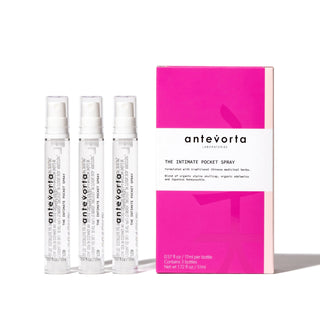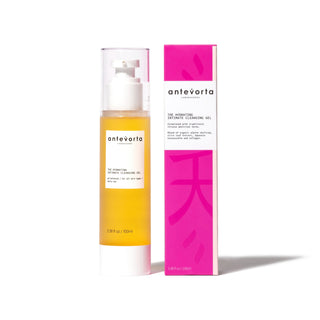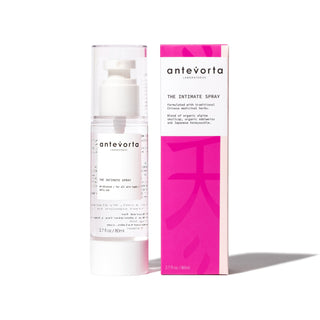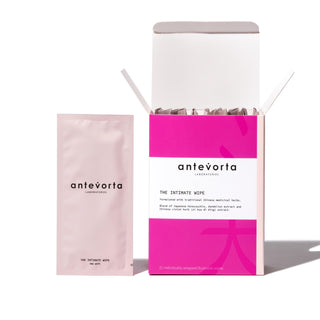Vaginal dryness isn’t just common, but almost inevitable: All kinds of factors can contribute to changes in vaginal moisture, from bigger milestones (like menopause or birth) to daily shifts in your menstrual cycle. Thanks to fluctuating hormones, most women can expect to deal with vaginal dryness somewhat regularly—and other factors like certain medications can also contribute to changes down there.
No matter the cause, we know that vaginal dryness can be a nuisance at best, and painful at worst—which is why arming yourself with the right habits (and understanding of your body) can make all the difference in finding relief. Below, let’s take a closer look at some habits and ingredients that can help tackle symptoms now and prevent them later.
What actually causes vaginal dryness?
Hormonal changes, life stages, and environmental factors can all play a role in your vaginal moisture.
- Menopause: During menopause, the body produces less estrogen, the hormone responsible for keeping the vagina lining moist. When estrogen levels dip, this tends to lead to more dryness.
- Pregnancy/Postpartum: Throughout pregnancy, your hormones tend to fluctuate—which can cause vaginal dryness. (When it comes to hormones, it’s really a balancing act.) This continues after giving birth: In fact, one 2018 study of 832 postpartum women found that 43 percent of them still experienced vaginal dryness 6 months after birth.
- Menstrual Cycle: Hormonal fluctuations throughout your 28-day cycle can also cause vaginal dryness. During the menstrual cycle, estrogen levels rise and fall, which can affect vaginal moisture levels. Vaginal moisture levels tend to be at their peak during ovulation—your body’s natural way of preparing for conception.
- Medications: Certain medications, such as allergy medications and antidepressants, can cause vaginal dryness as a side effect.
Other causes: Other factors that can contribute to vaginal dryness include stress, certain autoimmune disorders, and certain medical treatments, such as radiation therapy for cancer.
If you’re experiencing chronic dryness, it’s not a bad idea to consult with your doctor to see if there’s an underlying culprit. But either way, know that you’re not alone—and that there are a variety of ways to tackle symptoms, restore lubrication, and work towards long-term balance.
How to address vaginal dryness:
If your dryness is chronic or a side effect of menopause, some physicians might prescribe more extensive hormone supplementation. But if you’re wondering how to deal with fluctuating dryness, you might consider the habits below:
- Stay hydrated. It sounds obvious, but consider this your friendly reminder to get your daily fill of H2O. Just as your face is prone to showing the effects of dehydration, your vaginal skin is no exception.
- Be informed about lube. While it might offer instant gratification, lube can actually contribute to a cycle of more dryness, due to microbiome-disrupting ingredients. All in all, just be mindful of the ingredients you’re putting into your vagina—and try focusing on long-term health rather than instant gratification. FWIW, we created our Hydrating Intimate Cleansing Gel with precisely this in mind—we leverage moisture-building ingredients like olive leaf extract and type III collagen, as well as other herbal ingredients to restore balance (without disrupting the microbiome).
- Consider ancient remedies that support long-term health. In Traditional Chinese Medicine (TCM), vaginal dryness is often attributed to a deficiency of yin energy. (Yin energy is the energy that represents cooling, calming, and moistening qualities in the body.) To address vaginal dryness from a TCM perspective, practitioners may recommend herbs that help nourish yin energy, such as Dong Quai (also known as female ginseng) and Shatavari root. Acupuncture may also be recommended to help stimulate blood flow to the genital area and promote overall balance in the body.
The bottom line? Dryness can be a nuisance, but it tends to affect most women in some way or another. The good news is that are simple ways to address vaginal dryness—right now, and for the long haul.





